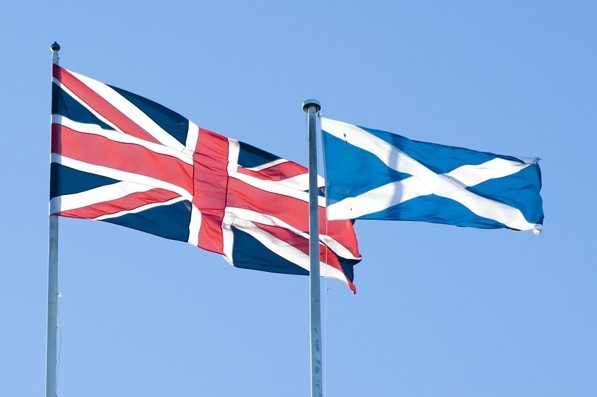Within hours of the decisive NO to Scottish independence, UK markets started to recover. The pound rose, the stock market strengthened, and the Royal Bank of Scotland confirmed it would not be moving south as it had threatened. All are signs that confidence has been restored, now that the result has been settled.But there are going to be big changes, even with a NO vote. David Cameron, on the steps of Downing Street just after the result had been announced, declared that not only would Scotland be getting extra powers – something promised by all the main political parties – but that in fairness, Wales, Northern Ireland and indeed England could expect greater powers too. He did not mention the words 'English Parliament' but it is plain that the constitutional reshuffle that the referendum has provoked will see the West Lothian Question – the enigma of Scottish MPs voting on English issues in Westminster – finally settled.
Some say that the nationalist leader, Alex Salmond, has got what he really wanted – a continuation of subsidies from England, but the promise of more power for his Parliament in Edinburgh's Holyrood. The truth is, he wants a lot more 'devo max' than the main parties are offering, with wide powers over taxation and spending.
And this is likely to happen quite fast. Former Labour Prime Minister Gordon Brown predicts there will be an official paper on new power-sharing arrangements in October. A White Paper, setting out the government's proposals, will be published by St Andrew's Day, at the end of November. A draft Scotland Act will be published by Burns Night, at the end of January 2015, though it will not make it through the legislative process until a new Westminster Parliament is elected in June 2015.
The three main parties, spooked by the apparently narrowing polls just before the vote, signed a pledge, all promising more devolution, in the hope of buying off a seemingly strengthening Yes vote. (In fact, the polls had been very consistent, forecasting a strong No vote, over 23 months. Perhaps the last minute narrowing was just Scottish electors trying to give the Westminster politicians a fright. Which worked.)
The Labour Party wants to give Holyrood power to vary income tax by 15p, meaning that the top 50p rate could be restored – something they dream of, but which would see quite a number of top Scottish executives quietly moving their domicile south. The Scottish Labour Party also wants to devolve attendance allowance (a benefit to carers of disabled people) and housing benefit (so it can scrap the so-called 'bedroom tax').
The Conservatives want income tax completely devolved, meaning that the Scottish Parliament would raise roughly 40% of its total budget through devolved taxes, and they would devolve housing benefits and attendance allowance too.
The LibDems want Scotland to have more power over income tax, inheritance tax and capital gains tax, to create a new 'federal' relationship between the nations of the UK, and to move the block grant from Westminster to Scotland on 'needs based' principles.
Alex Salmond, for his part, will be going into the negotiations demanding far more control over all taxes, and over welfare spending. However, that may not deliver the outcome he would prefer. One of the reasons why the Conservatives want to see income tax devolved is because they think it would change the debate in Scotland. At present, the only debate is how the block grant from Westminster should be spent. If there is a new question, of how much should be raised in taxation, and from whom, the debate changes and Scotland would at last have a genuine Opposition in the form of all those who think taxes are too high and the government too big. And government spending in Scotland is big – £12,300 a head, compared to £11,000 for the UK as a whole.But then, according to economist David B Smith, over two-thirds (69.1%) of what is spent in Scotland is government spending – meaning that the majority of Scottish electors are highly dependent upon big government staying big. Independence would have brought some hard choices about the size and cost of Scotland's government. The No vote will produce only prolonged grumbling about it. The really interesting and sensational change, for constitution-watchers, will be what happens in England. The taxpayers of a more assertive English government are unlikely to do many favours to a high-spending Scotland. That could be Alex Salmond's worst nightmare.

